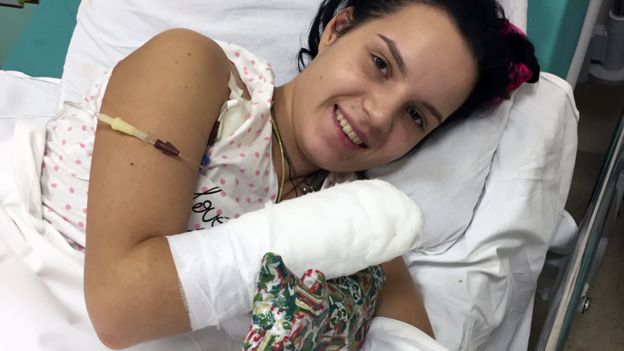The Horrors of Domestic Violence
"How many cases have there been since mine, how many women have been killed? And the government just sits, frozen, unable to do anything."
"The police in this country don't take us seriously."
"If knowing my face means more awareness of women's suffering, then so be it."
Margarita Gracheva, victim, spousal abuse, St.Petersburg, Russia
 |
| Margarita Gracheva in hospital |
"[The notorious cases of familial/spousal abuse have] helped the government understand that we are not dealing with violence in the right way."
"Hard work on the bill [a law combating violence against women] is happening right now, and we've seen some positive action from the government that points to the bill being submitted to parliament for a first reading this winter."
Mari Davtyan, human rights lawyer, Russia
 |
| Russian lawyer Mari Davtyan |
"Our church [Russian Orthodox Church] is influential because it is a department of the state."
"And if there is political will to adopt the law, the church will not oppose it."
Ekaterina Schulmann, political scientist
Margarita Gracheva, 27, named herself #TransformerMom in a hashtag, referring to her right hand. In December of 2017 her husband took her into a nearby forest and there he took up an axe and chopped off both her hands. Her left hand had fallen and was preserved in snow, and surgeons were able to reattach it. Her right hand stands out and will always reflect that this woman had been subjected to a truly savagely violent atrocity by her husband. Her bionic hand and her story have gained her attention, admiration and empathy in Russia as the quintessential abused woman.
She is a mother of two boys and at age 27 a veteran of marital abuse of a truly horrifying quality. She has also become a media sensation in her country with a book deal offered by a publisher close to the Kremlin. As a campaigner for government protection for abused women she has become a regular on state-run television for her many appearances and appeals for action to respond to all-too-frequent attacks of violence women suffer.
Her book, "Happy Without Hands" occasions many of her speaking engagements. She had gone to the police in her home town south of Moscow after her husband had threatened her with a knife. Police were disinterested. And the result was predictable; threats increased and her life was in danger, culminating in the ultimate attack, removing her hands to leave her helpless. She is anything but helpless. She has attracted notice and with it a growing determination in the public to effect a change in the culture of family violence.
For the first time a law against domestic violence is in the works for Russia, the only country in the 47-member Council of Europe without legislation specific to the protection of women from domestic violence. The media attention her husband's attack generated, along with her high visibility and her concerted efforts at highlighting the plight of women threatened by their intimate partners was responsible, in her opinion, for the 14-year prison sentence meted out by the court to her husband.
A palpable shift in the public mood with respect to domestic violence has led to street protests along with artistic and cultural activity focusing on the subject. In October Alfa Capital, one of Russia's largest banks, fired a top manager in the wake of his wife's accusation that he beat her. Three sisters after years of sexual and physical abuse killed their abusive father Mikhail Khachaturyan. Two of the sisters had been identified as "aware of their actions" and may face charges of premeditated murder. The third sister was not expected to face charges.

When deputy justice minister Mikhail Galperin said "It is logical to assume that male victims suffer more from discrimination in such cases", relatives of women who had been killed by their partners responded with the demand that he resign. And while the Russian Orthodox Church, whose influence has risen under Vladimir Putin has opposed domestic violence bills traditionally, Christian groups last month organized protests across the country with people holding signs reading "My house is my fortress" and an organizer claimed a domestic violence bill would "put men off marriage".
Domestic violence is a universal ill of immense proportions. It is an issue that evokes fear and horror in women everywhere where women are ill-treated, threatened and abused. In countries where women are meant to feel secure under the law, and where policing authorities take any claims of abuse seriously, are swift to act, the evil that it represents still raises alarm. Familial homicide mostly targeting women happens all too regularly. In Canada, its most populous city, Toronto, struggles to come to terms with one small portion of the city which saw 28 domestic homicides where protective laws are in effect.
Labels: Domestic Violence, Russia

<< Home